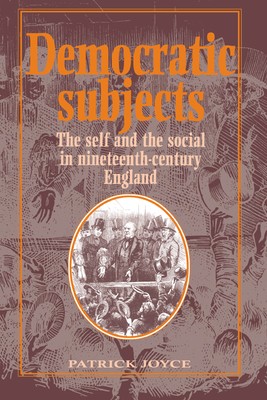
- We will send in 10–14 business days.
- Author: Patrick Joyce
- Publisher: Cambridge University Press
- ISBN-10: 0521448026
- ISBN-13: 9780521448024
- Format: 15.3 x 22.8 x 1.5 cm, minkšti viršeliai
- Language: English
- SAVE -10% with code: EXTRA
Reviews
Description
This pioneering and highly original study explores critically the nature of class identity by looking at the formation and influence of two men (Edwin Waugh and John Bright) who are taken as representative of what "working class" and "middle class" meant in England in the nineteenth century. The book points the way forward to a new history of democracy as an imagined entity. It represents a deepening of the author's engagement with "post-modernist" theory, in the process offering a critique of the conservatism and complacency of much academic history, particularly in Britain.
EXTRA 10 % discount with code: EXTRA
The promotion ends in 22d.14:57:09
The discount code is valid when purchasing from 10 €. Discounts do not stack.
- Author: Patrick Joyce
- Publisher: Cambridge University Press
- ISBN-10: 0521448026
- ISBN-13: 9780521448024
- Format: 15.3 x 22.8 x 1.5 cm, minkšti viršeliai
- Language: English English
This pioneering and highly original study explores critically the nature of class identity by looking at the formation and influence of two men (Edwin Waugh and John Bright) who are taken as representative of what "working class" and "middle class" meant in England in the nineteenth century. The book points the way forward to a new history of democracy as an imagined entity. It represents a deepening of the author's engagement with "post-modernist" theory, in the process offering a critique of the conservatism and complacency of much academic history, particularly in Britain.


Reviews